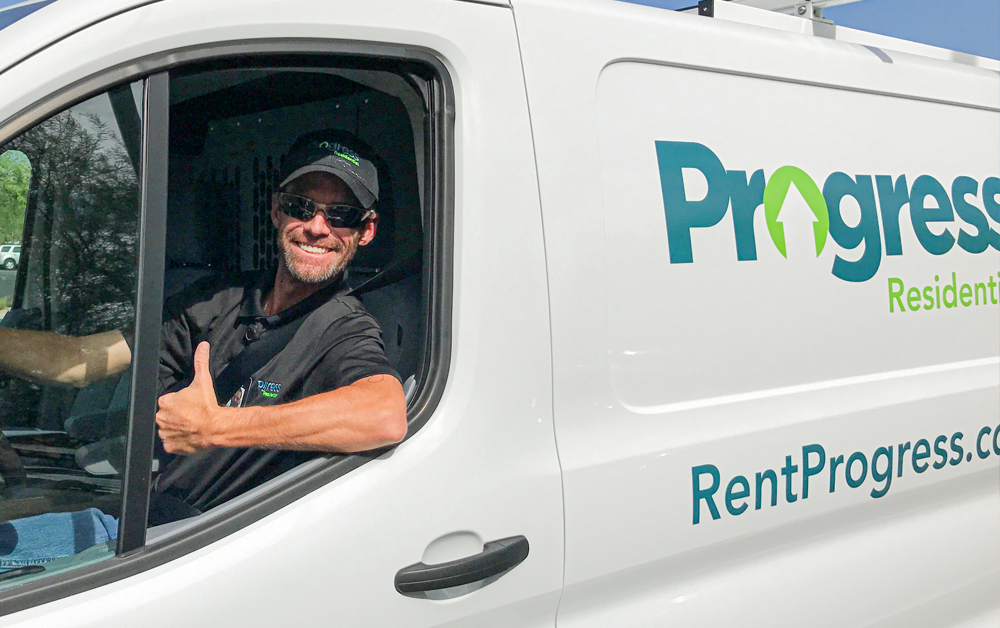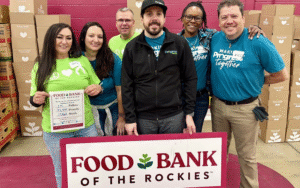
Building the Future: Progress Residential’s Workforce Development Program
Skilled trade professionals – They’re the ones who keep the air conditioners running, lights on and pipes flowing in our homes and communities. Currently, the US is facing a critical shortage of skilled tradespeople with close to 400,000 open trades jobs and 40% of current construction workers expected to retire by 2031 (Source:CSRWire). Additionally, there has been a drastic 49% drop in applications for technical jobs like plumbing and electrician roles reported between 2020 and 2022 (Source:NPR).
While the national landscape shows a dip in the technical trades, Progress Residential, one of the nation’s leading providers of property management services for single-family rental homes, is charting a different course.
Through an innovative Workforce Development program, Progress is proactively tackling the issue with a tangible, three-pronged approach:
- Equipping individuals with practical knowledge and hands-on training
- Building strong community and educational partnerships with lasting impact
- Cultivating well-rounded individuals who excel beyond technical skills
This program is far more than just technical training; it’s a comprehensive investment in people and the communities they call home. Progress recognizes the crucial role skilled trades professionals play in maintaining our nation’s infrastructure and fostering thriving neighborhoods.
In this blog post, we’ll provide a deeper look into how this groundbreaking initiative is bridging the gap between education and industry needs while benefiting individuals, residents, communities and the organization along the way.
Program Overview
The Workforce Development circular program offers equitable training and meaningful career opportunities while meeting the growing needs of residents and their cherished homes.
This circular model provides:
- Training and Mentoring – Hands-on learning, innovative video simulations and dedicated mentors provide a roadmap for a rewarding, long-term career.
- Career Pathways – Upon completing the program, apprenticeship graduates are eligible to advance into a Service Technician career.
- A Circular Workforce – A hire-and-train system taps into our existing workforce, ensuring we have a pipeline of qualified technicians to work on the homes we lease.
Practical Knowledge and Hands-On Experience
By offering comprehensive pre-apprenticeship and apprenticeship opportunities, the program equips students for their future careers. During this time, they gain valuable hands-on experience that prepares them for careers in the residential construction and/or maintenance industry.
There are two learning development pathways offered:
Pre-Apprenticeship Experience
- Duration: 1-2 months
- Provides a pathway to become a Service Technician
- Includes on-the-job learning and mentorship
- Available to current students in vocational training programs
Apprenticeship Experience
- Duration: 3-6 months
- Advances career as a technician
- Upon completion, provides an opportunity to advance into a Service Technician career
- Available to: Recent graduates of partner schools
Partnerships for Lasting Impact
Having strategic partnerships with technical and vocational schools, non-profit organizations, military transitioning services and other community-based programs nationwide is a key focus of the program and what sets it apart. The program supports building individual’s skillsets while placing emphasis on the importance of completing their formal education.
“Our workforce managers talk to them [students] about how to carry themselves, how to interview, how to write a resume, how to be tactful, how to communicate and know what is expected out there in the career field. The technical piece is just one aspect of it. The interpersonal skills and the ability to communicate effectively is essential as a service technician,” Progress Director of Workforce Development, Mike Steigerwald, shares.
The end goal is to upskill and develop well-rounded individuals who excel, not only technically, but also interpersonally. Once they complete the program, they’re able to apply their educational knowledge to real-world situations and pursue successful, long-term careers in plumbing, electrical, HVAC, mechanical, flooring and more.
Why Progress is Tackling This Issue
The positive impact of the Workforce Development program is felt across local communities, the skilled trades sector, the Progress Residential team and for valued residents through:
- Building a talent pipeline for the organization, ensuring a pool of qualified service technicians
- Providing in-demand, quality career opportunities
- Creating increased economic mobility by investing in local communities and the people that live in them through technical education access
Leshawn Tremor, a Make Ready Apprentice, emphasizes the program’s life-changing potential:
“Developing a trade interested me. A skill like that is priceless. The pandemic let me know that you have to have some skills to fall back on because you never know what the job market will be. This program is something that can definitely change your life. You can develop a real skill and you work with a great company, great bunch of people, and new challenges every day. The apprenticeship program is something that, I think, will definitely help people moving forward. It gives you a good head start as far as gaining skills and a formula for trying to go out there and be efficient”.
Paving the Way for Skilled Trades
Investing in the skilled trades benefits trade workers, Progress residents’ service needs, and society at large through quality education and career opportunities.
The Workforce Development Program is a powerful investment in the future. A holistic approach, impactful partnerships and inspiring success stories demonstrate Progress Residential’s commitment to building a skilled workforce that will shape our industry for years to come.



